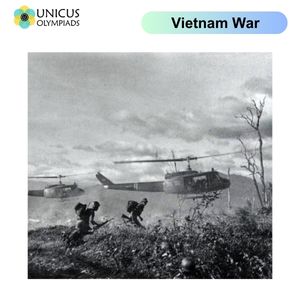

The Vietnam War, which lasted from 1955 to 1975, was a pivotal conflict during the Cold War that had a profound impact on both politics and public opinion in the United States, Vietnam, and globally. The war not only caused significant political changes but also sparked widespread protests, shaped public attitudes toward government authority, and influenced future military engagements. The lasting effects of the Vietnam War on US politics and public opinion continue to be felt in discussions about military interventions, foreign policy, and civil liberties. This article explores how the Vietnam War reshaped political landscapes and public attitudes, both in the US and abroad.

The Vietnam War significantly altered American politics, influencing presidential administrations, public policy, and the role of government in military engagements. The war was deeply divisive, and its consequences stretched far beyond the battlefield.
The Vietnam War generated widespread opposition within the United States, particularly among young people, civil rights activists, and the left-wing of the political spectrum. The war led to a significant shift in public opinion and the rise of one of the largest anti-war movements in US history.
The Vietnam War had significant global implications, particularly in shaping international views on the United States and the nature of Cold War conflicts. The war strained US relations with its allies and prompted a re-evaluation of American foreign policy.
The Vietnam War left a lasting impact on American politics and public opinion, affecting how the United States approached future military engagements and shaping the public's trust in government institutions.
The Vietnam War profoundly affected both US politics and public opinion. Domestically, it led to a dramatic shift in public attitudes toward government authority, military intervention, and foreign policy. The widespread protests and media coverage highlighted the gap between government assurances and the realities of the war, fueling the anti-war movement and increasing skepticism about the government’s decisions. On the global stage, the Vietnam War damaged the United States' credibility and reshaped the Cold War dynamic. The lessons learned from the Vietnam War continue to influence US foreign policy, particularly in terms of military engagement and public accountability. The war’s legacy underscores the importance of public opinion in shaping policy and the need for careful consideration before military intervention.